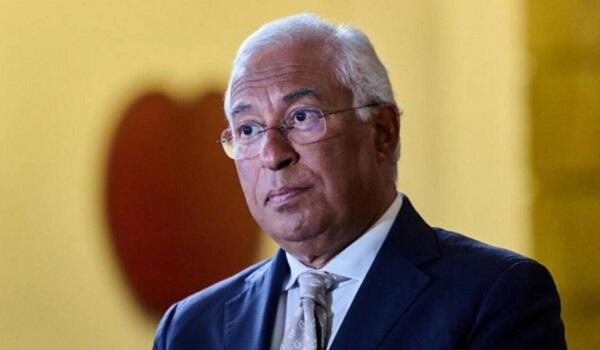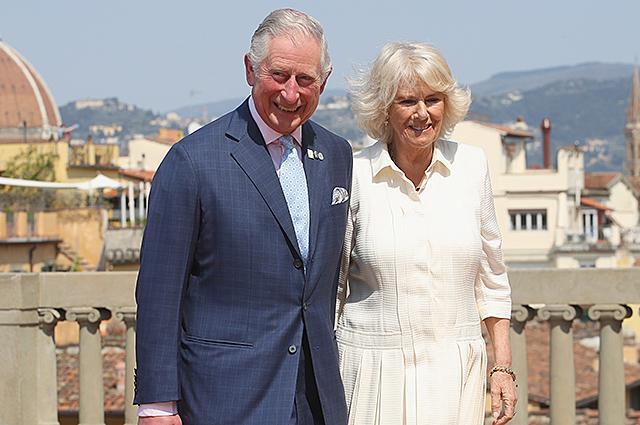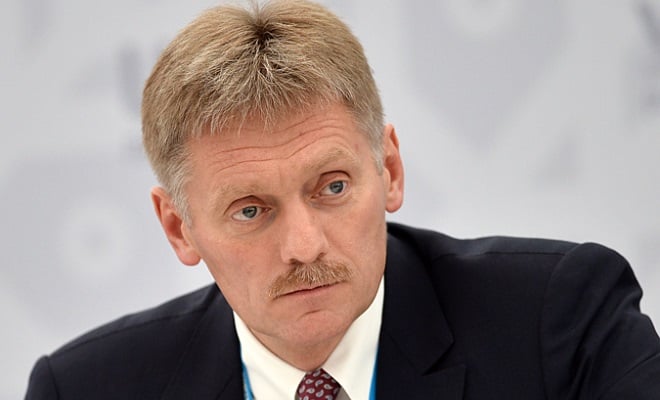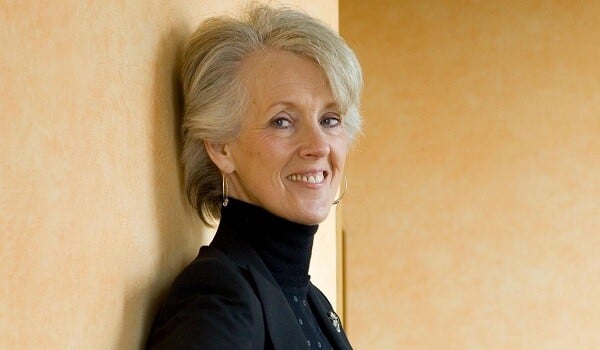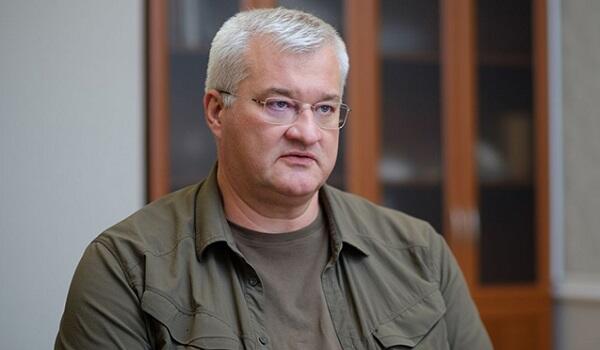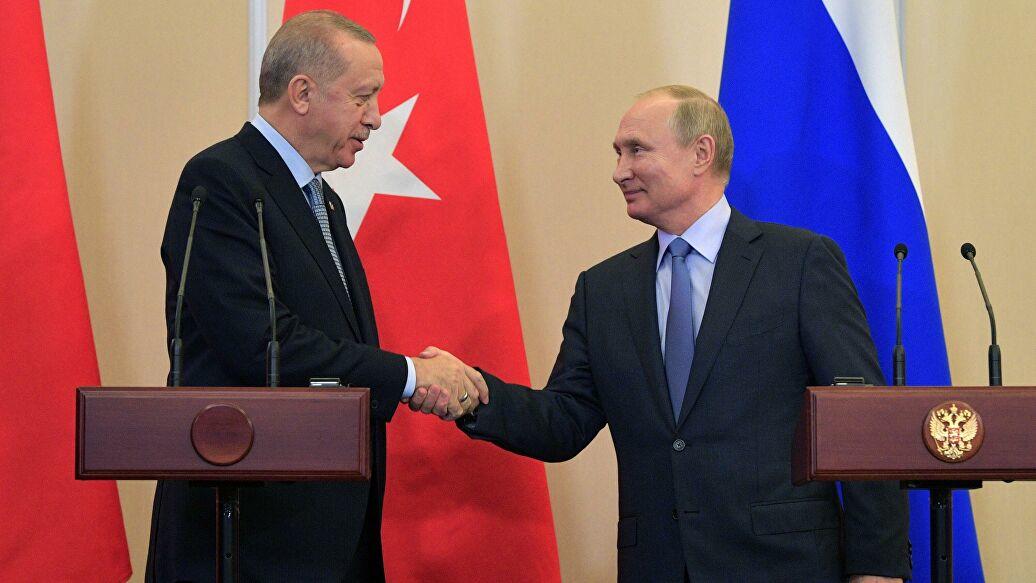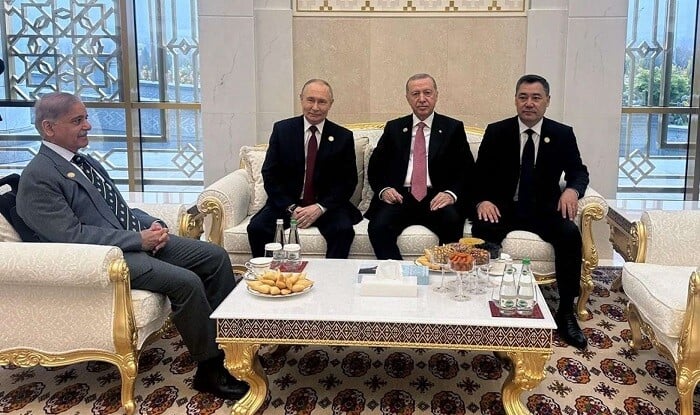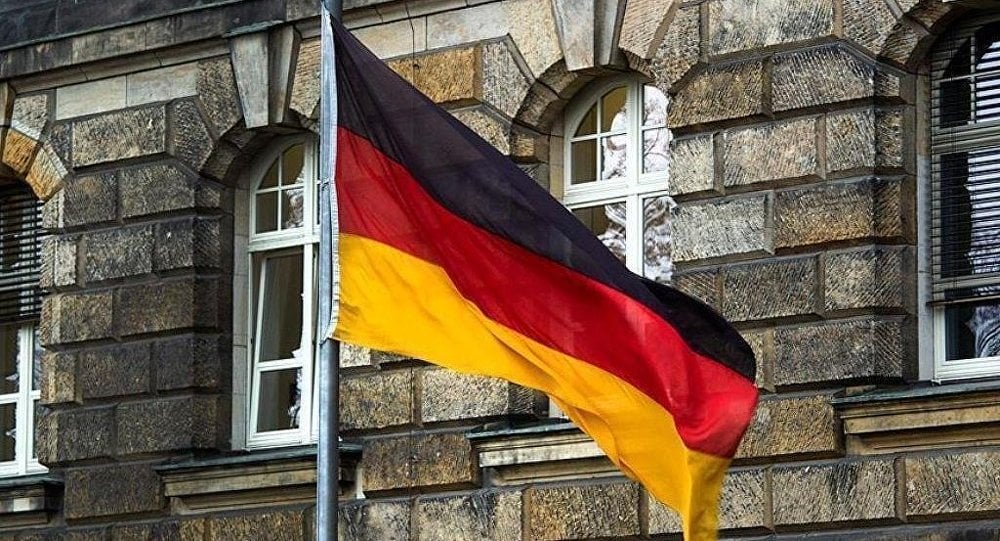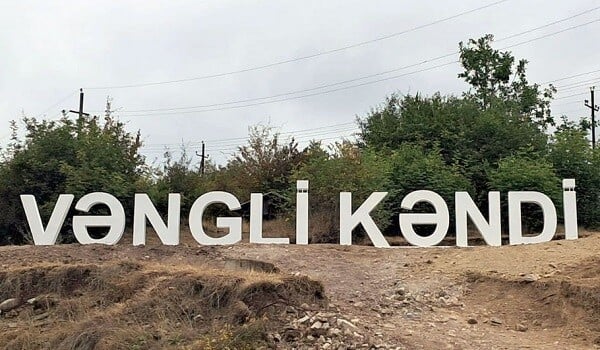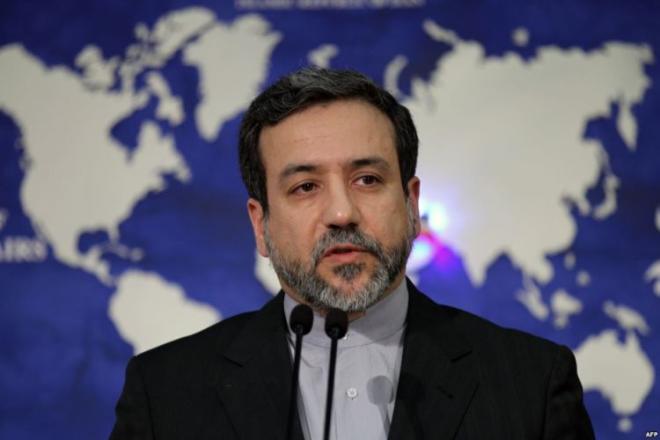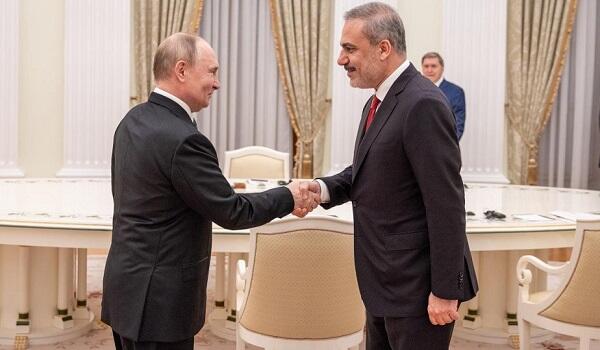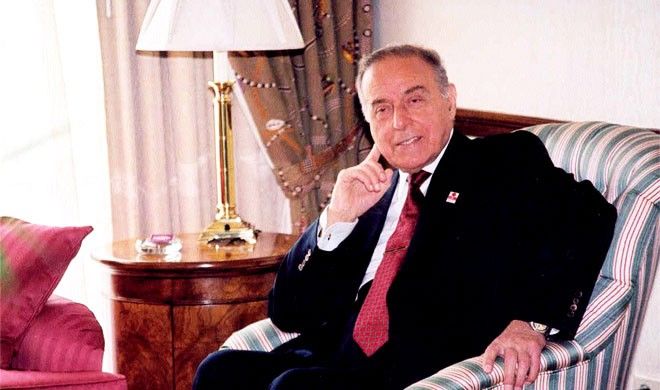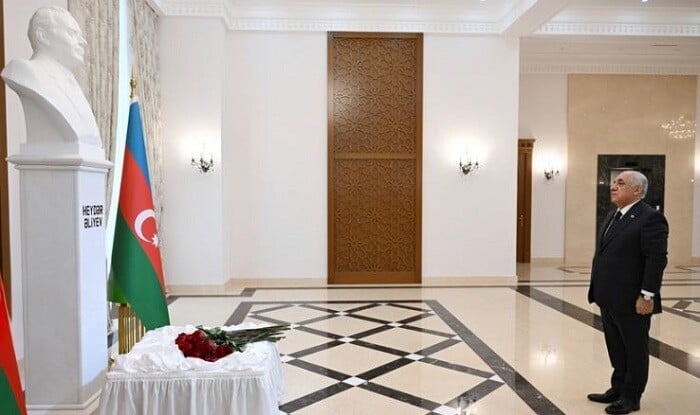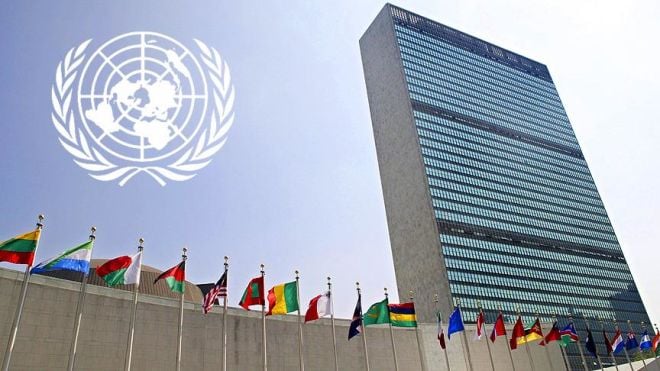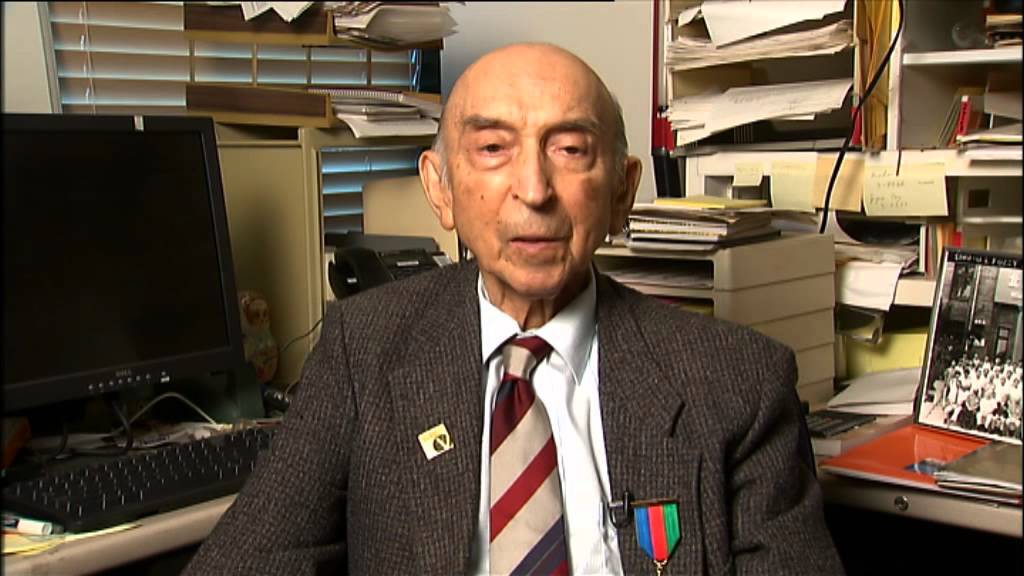Azerbaijan’s scientist who lives in the United States, Lotfi A.Zadeh got some health problems.
Axar.az shares with you information about our scientist:
Lotfi Zadeh, who is mentioned in the same breath as Aristotle, Albert Einstein and Norbert Wiener, was born in 1921 in Baku into the family of Rahim Alasgarzadeh. He was born at a difficult time when Soviet power was establishing itself and Azerbaijan was engulfed in a struggle between old and new. On the one hand, new industrial enterprises were being built, and new types of schools opened, while on the other, oil was still being extracted manually. This is the atmosphere in which Lotfi Zadeh spent his early years. As Stalin began agricultural collectivization in the 1930s, Rasim Alasgarzadeh moved with his family to Tehran.
Tehran too was living through hard times, but Lotfi Zadeh soon adapted to the Tehran atmosphere, accustomed as he was to living and studying in difficult conditions. He continued his education at the Alborz American missionary college and, later, at Tehran University´s electrical engineering department. Lotfi Zadeh graduated from Tehran University in 1942 and in 1944 went to the United States to pursue his scientific interests.
Lotfi Zadeh says of this time: “I had to move to America as an immigrant from Iran. I went to the Massachusetts Institute of Technology. I lived in New York for a while and got a job in an electronic association. In September 1944 I went to Boston. In 1947 my parents arrived in America too and settled in New York, so I went to work as an engineer at Columbia University. I wanted to be closer to my parents, to help them. In 1948 I received a bachelor´s degree in electronic engineering from Columbia University. A little later, in 1957, I was awarded the degree of a professor. In those days the father of cybernetics, Norbert Wiener, was chairman of the electronic engineering department at the University of California. He wrote me a letter and offered me work at the University of California, Berkeley. I hesitated for a while about this offer, but in the end accepted it …”
Professor Lotfi Zadeh has worked at the University of California, Berkeley, since 1959. He became chairman of the electronic engineering department and is now director of the computing center. The scientist developed his theory of fuzzy logic while working at Berkeley. Fuzzy logic failed to find acceptance amongst the American scientific community for 20 years, but in the 1980s it attracted great interest amongst Japanese scientists. The theory began a new period in the development of mathematics, cybernetics and information and computer technology, becoming deeply rooted in all these areas. Fuzzy logic is now used in thousands of different systems and products, from washing machines to automatic pilots. The practical application of fuzzy logic gradually surpassed its abstract essence.
Lotfi Zadeh´s theory of fuzzy logic plays an important role in the US space program. In Japan, camera and video equipment are produced on the basis of fuzzy logic while in Denmark it forms a basis for the operation of cement furnaces. In Europe, a variety of “smart” systems operate on fuzzy logic. Fuzzy logic is now profitably used by major Japanese companies such as Mitsubishi, Toshiba, Sony, Canon, Ricoh, Sanyo, Nissan, Honda and NEC and American companies including General Motors, General Electric, Motorola, DuPont and Kodak. For example, Matsushita, which produces consumer goods under the brand names Panasonic and Quasar, is estimated to have made billions of dollars in profit from using fuzzy logic in its products. The theory is now also used in economics, psychology, linguistics, politics, philosophy, sociology, theology and conflict resolution.
What is fuzzy logic?
One way to explain fuzzy logic is to contrast it with Aristotelian logic. Aristotle perceived the world in terms of absolute logic, in black and white, while Professor Lotfi Zadeh´s fuzzy logic perceives the world in a variety of shades from black to white. To put it scientifically, the real world is not discrete but interconnected. In this world, nothing is absolute in mathematical terms, as everything varies to a certain degree on a scale of 0-1. As a result, between zero and one, there are dozens, hundreds, of other shades. It becomes clear that the borders of white and whitish, scarlet and red are fuzzy; there is a continuous transition from one to the other.
New theories usually bring fundamental changes in the areas to which they apply. Professor Lotfi Zadeh´s fuzzy logic is a shining example. Fuzzy logic led to a thorough revision of mathematics. The concept of function was based on an absolutely new way of thinking. There was the theory of fuzzy functions, the theory of fuzzy differential equations and the theory of fuzzy geometry. A new mathematical concept had been created. We have already seen that Professor Lotfi Zadeh´s theory of fuzzy logic has been widely applied in all areas of science. From this point of view, his general computer methodology aimed at studying problems in science and the humanities is particularly interesting. This methodology allows the study of objects about which our sensory organs can or cannot transfer information to the brain. It creates the right conditions to perceive the world. Lotfi Zadeh´s system of fuzzy logic allows problems in any area of human activity to be investigated as a complex, dynamic system.
The theory of fuzzy logic is known throughout the world but remains controversial. Professor Lotfi Zadeh has his own take on fuzzy logic. He thinks it impossible to have a single opinion about the theory, as the concept reflects different values. The theory has shades that are both past and limited. Fuzzy logic can be seen as a logical system like the logic of hydrolysis. This is how Professor Lotfi Zadeh sees it. Another perspective is the theory of sets itself. The theory of sets has many values and is in some sense the theory of equivalence.
Fuzzy logic is not Professor Lotfi Zadeh´s only theory. He developed the theories of the system and optimal filters. The theory of optimal filtration is a new step in modern mathematics, cybernetics and computerisation, and is valued not only for its scientific originality but also its practical results. The theories of multiple valued optimization and impressions in dynamic systems were also developed by Professor Lotfi Zadeh.
Lotfi Zadeh´s main contributions to science
1949 Development of a frequency domain based theory of time varying networks
1950 Extension of Wiener´s theory of prediction, with J.R. Ragazzini
1952 Development of the z-transform approach, with J.R. Ragazzini
1953 Development of the theory of nonlinear filters
1956 Formulation of the problem of system identification
1963 Initiation of the state-space approach to the analysis of linear systems, with C.A. Desoer
1965 The theory of fuzzy sets and fuzzy logic
1968 Probability measures of fuzzy events
1970 Decision-making in a fuzzy environment, (with R.E. Bellman)
1973 Principles of a new approach to the analysis of complex systems and decision processes
1973 Introduction of the concepts of linguistic variables and fuzzy if then rules
1978 Development of PRUF - a meaning representation language for natural languages
1979 Development of the theory of approximate reasoning
1983 The role of fuzzy logic in the management of uncertainty in expert systems
1985 Development of the theory of usuality and commonsense reasoning
1988 Development of dispositional logic
1991 Initiation of the calculi of fuzzy rules, fuzzy graphs and fuzzy probabilities
1991 Development of soft computing
1996 Development of computing with words
1997 Development of a theory of fuzzy information granulation and its central place in human reasoning and fuzzy logic
2001 From computing with numbers to computing with words – from manipulation of measurements to manipulation of perceptions
